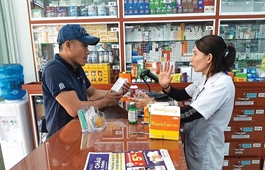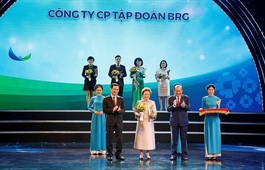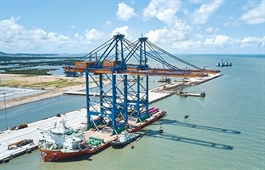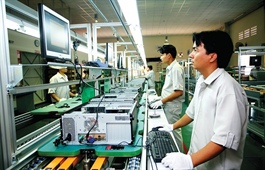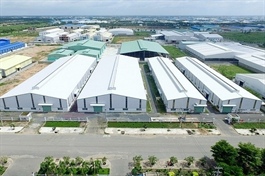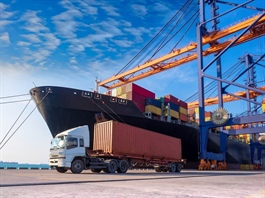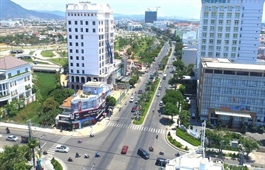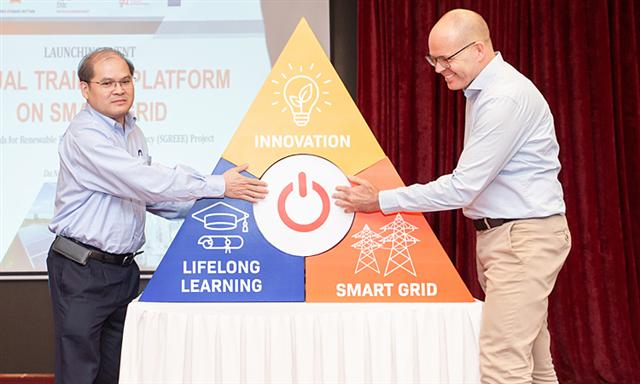Farmers benefiting from PPP solutions
Farmers benefiting from PPP solutions
Multinational corporations are joining forces to implement a variety of public-private partnerships to drive development of sustainable agriculture in Vietnam.
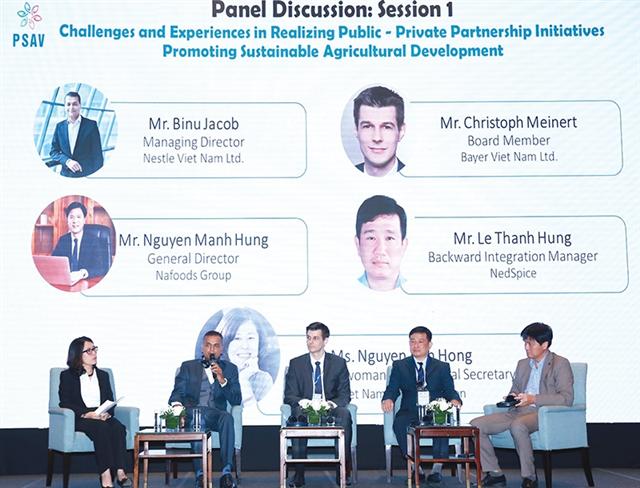
PSAV members have been leading the way at key sustainability forums
|
Le Quoc Doanh, Deputy Minister of Agriculture and Rural Development, highlighted the important role of public-private partnership (PPP) investment in promoting Vietnam’s agricultural sector to become more sustainable and effective. After 10 years of establishment, PPP Task Forces under Vietnam’s Partnership for Sustainable Agriculture (PSAV) in Vietnam have brought encouraging results, which includes developing many sustainable and environmentally-friendly models while increasing farmer incomes.
At the same time, the PSAV has also created a value chain from production to deep processing and export, contributing to improving the competitiveness of agricultural products. Up to now, the PSAV boasts eight PPP Task Forces for coffee, tea, fruit and vegetables, fisheries, rice, spices, livestock, and agro-chemicals. They have been formed and operated with the participation of 120 organisations including government agencies, companies, industry associations, research institutes, and international and non-governmental groups.
Among them, Bayer is now a recognised trendsetter in the field of seeds and crop protection in Vietnam. As part of the group’s strategy, Bayer is committed to supporting Vietnamese farmers with sustainable farming practices.
Christop Meinert, a board representative for Bayer Vietnam, said that the initiative and general development of sustainable agriculture is crucial for farmers to battle the adverse effects of drought, saltwater intrusion, and the COVID-19 pandemic.
“In Vietnam, Bayer in collaboration with the Ministry of Agriculture and Rural Development and other organisations have implemented the initiative to spur on the development of responsible farming projects. It is proving a driving force for sustainability among the 80,000 smallholder farmers in the country during what has been a trying year,” Meinert said.
In addition, Bayer Vietnam has tied up with a German organisation to implement a PPP initiative in rice farming since 2017. This scheme combines timely applications of seed treatments, herbicides, fungicides, and insecticides connected with farmer’s practices as integrated crop management methodologies that help them reduce inputs and improve rice yield and quality, and ultimately profitability.
“Bayer Vietnam will work closely with government agencies, partners, and farmers to further promote PPP initiatives in the coming time. As Vietnam is moving towards a green economy, the PPP model may be an opportunity for the country to achieve this goal. Sustainable farming practices need to put farmers in centre, support them to improve productivity and make income forecasts,” Meinert added.
Vietnam was once deemed the world’s largest coffee producer. However, the industry has faced many obstacles, especially the small farming areas of 1-2 hectares making it hard to achieve higher yield. In addition, old coffee-growing areas led to a decline in yield so the industry needs to replant old coffee trees. Meanwhile, the Vietnamese coffee plants suffered negative effects from climate change, lack of water, and heavy use of fertilisers and pesticides.
Thus, Bayer has introduced its drip irrigation solution on coffee replanting. This solution is conducted by WASI using Bayer’s solutions including Much More Coffee and Velum, and Netafim’s drip irrigation system. With Drip Protection, water and crop protection products are distributed throughout the fields via the drip irrigation system and delivered directly to the roots of the crop.
Drip Protection can create many shared values among various stakeholders. For farmers, it brings better profitability and cost reduction as well as helping with risk management. It aims to help commercial increase along with high value proposition via knowledge sharing. For the industry, the innovation is setting a new standard for further application and advancement.
Taking into account food chain companies, shared values are shown in the better quality, profitability, and predictability with less residue and traceability via increased acceptance and acknowledgement. On top of that, the solution brings about water use efficiency via elevating farming practices, with the mechanism impacting on non-target organisms and helping to reduce footprint, which strongly addresses the interests of the local community and government.
With increasing challenges faced in agriculture, including growing population, limited arable land, impact of climate change, labour shortages, and limited resources, harnessing innovative solutions and farming technologies could be a part of solution to support solving the challenges for sustainable agriculture.
Bayer has experience in applying crop management solutions to reduce costs and increase productivity and profits for farmers. With intensive experience and capacity in the area, Bayer aims to successfully fulfill the role of a PSAV member, contributing to the sustainable development of the rice industry in Vietnam. According to experts, the support from members of the PSAV has brought great opportunities to promote Vietnam’s agriculture to sustainable, effective level and increase competitiveness in international markets.



